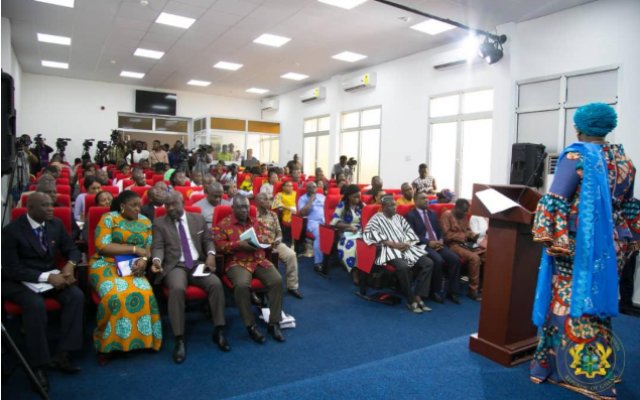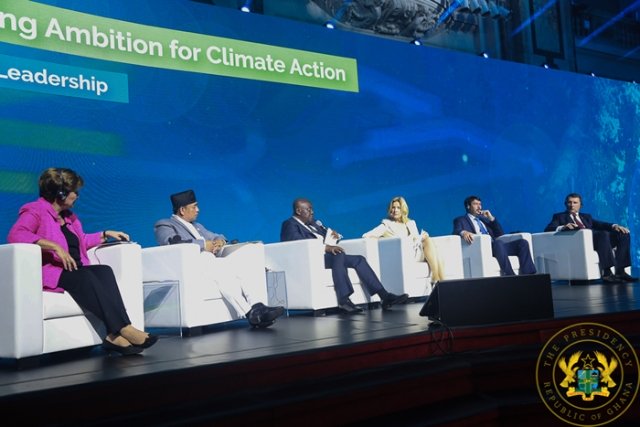The Minister of Local Government and Rural Development (MLGRD), Hajia Alima Mahama, has said the government has developed a rural development policy, which will serve as a guideline for coordinated service delivery and investment in rural communities.
The minister said the policy seeks to modernise agriculture for rural growth and development; provide quality socio-economic infrastructure and services in a decent and secure environment; maximise the potential of rural areas toward rural enterprise development and industrialisation.
The document will also promote sustainable management and utilisation of natural resources for the benefit of the rural population, promote financial inclusion in rural communities and strengthen the participation of the rural communities in the decentralised governance system.
Alima Mahama disclosed this at the ‘Meet The Press’ series in Accra on Wednesday, 29 May 2019.
The minister mentioned that some projects were completed under the Ghana Social Opportunities Project (GSOP).
These include small earth dams, some of which were adapted for irrigation, 20 feeder roads and 78 climate change interventions.
She also stated that 9,450 jobs have been created with a total wage bill of GHS5.67 million for the workforce.
“My ministry, in collaboration with the Ministry of Gender, Children and Social Protection (MoGCSP), has secured a $60,000,000.00 facility from the World Bank to implement the Ghana Productive Safety Net Project. An allocation of $40,000,000.00 under the Ministry of Local Government and Rural Development (MLGRD) will be used to deliver projects such as feeder roads, small earth dams and dugouts and nurseries to produce 8 million fruit seedlings to be planted within a targeted area of 1,300 hectares,” she said.
Hajia Mahama disclosed that the project will create 30,000 direct jobs, through a Labour-Intensive Public Works (LIPW) programme and provide grants to 25,000 individuals to start small businesses through a productive inclusion programme.
She said: “The ministry, in collaboration with the Ministry of Food and Agriculture (MoFA) initiated the Planting for Exports and Rural Development (PERD), as part of its efforts to support the government’s national tree crop programme. The PERD aims to use the tree-crop subsector to provide sustainable income and create job opportunities in rural areas.
“In the 2018 pilot year, 4.5 million tree crop seedlings (mainly cashew, coconut and oil palm) were raised from nurseries established in 106 districts, and a total of 68,514 farmers planted the seedlings on 68,514 hectares of land”.
She said through the implementation of the Integrated Rural Development Project (IRDP) by the Social Investment Fund (SIF), a total of 245 socio-economic infrastructure are being provided and are at various levels of completion. Twenty-six have been completed and are being used, 94 are within 51 – 99 per cent of completion; and 25 are below 50 per cent of completion.
“The implementation of these infrastructure has created 2,185 jobs and GHS14.04 million was paid as remuneration to the engaged persons. Under the microcredit scheme of the IRDP, 6,204 farmers have been provided with a credit facility, totalling GHS10,326,805.00,” she added.




